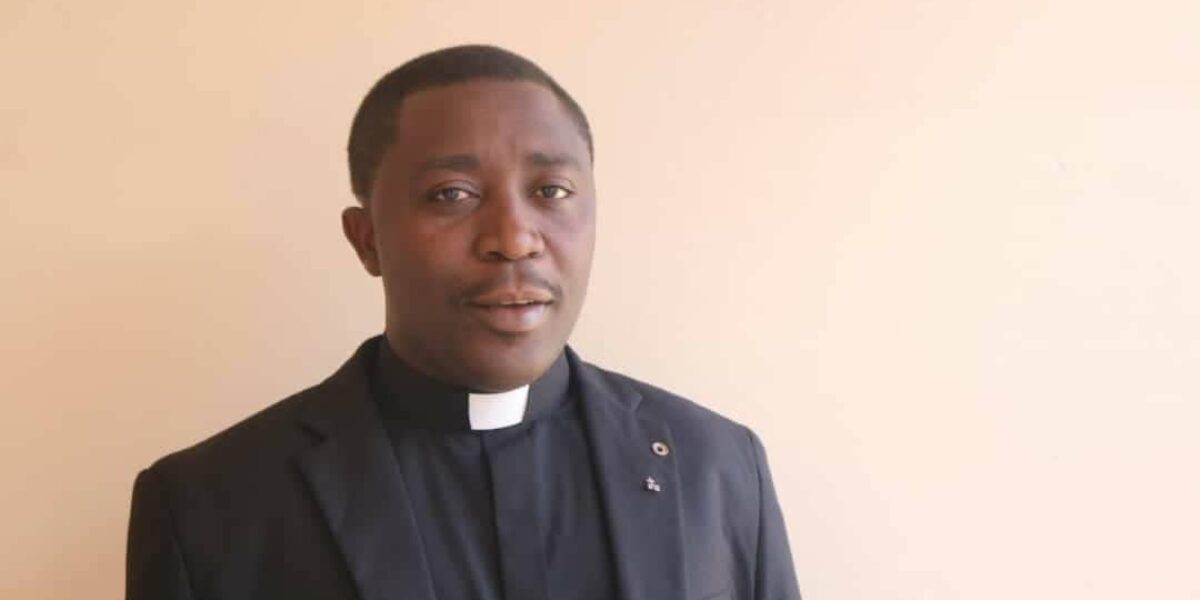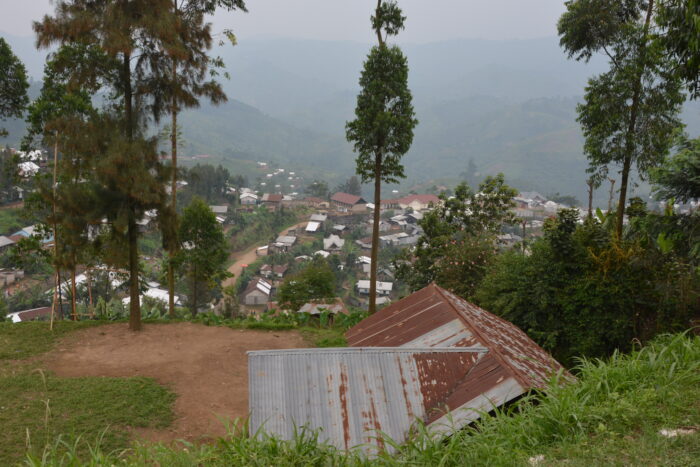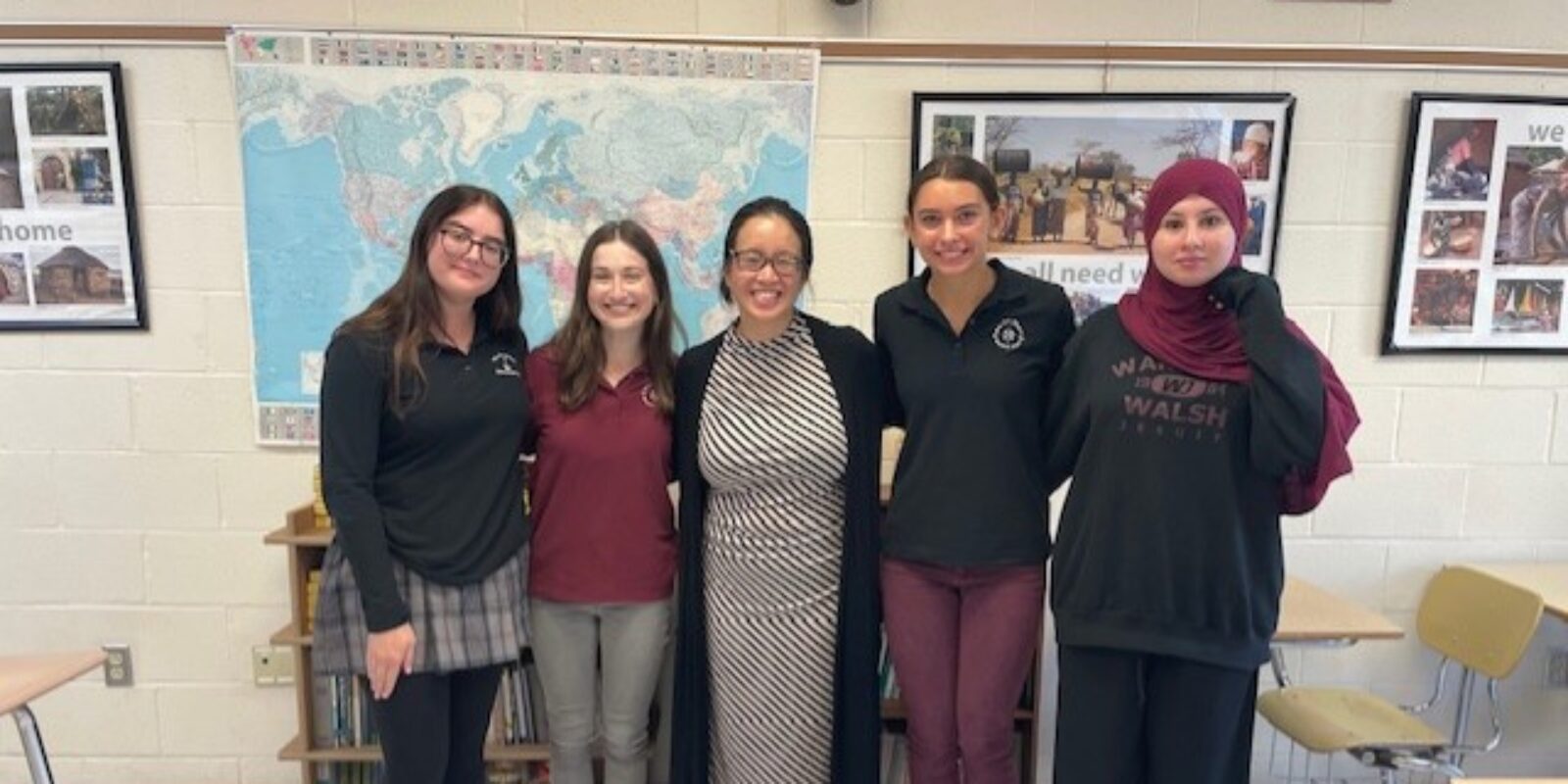Reflection on the State of Displacement in 2024
28 June 2024|Deogratias Fikiri, S.J.

Growing up in the Eastern Democratic Republic of Congo, I lived in a city teeming with childhood friends, many of whom had sought refuge there after the Rwandan genocide. At that time, our region was a sanctuary of peace, a stark contrast to the turmoil that would later engulf it. No one could have foreseen that this tranquil haven would become one of the world’s most turbulent areas, producing the highest number of internally displaced people. The conflict in the Eastern Congo has since escalated dramatically, leading to countless tragedies, and displacing millions.
In the aftermath of the Rwandan genocide, the seeds of war were sown in Congo, and the number of internally displaced individuals has surged exponentially, reaching a staggering 6.7 million according to the UNHCR report of 2023. Witnessing the relentless suffering of refugees and displaced people firsthand profoundly shaped my life. From a young age, I spent countless hours visiting refugee camps and volunteering across Congo, Kenya, and Ethiopia. These experiences ignited a deep and enduring passion within me. Three decades later, the conflicts in the Eastern Republic of Congo and many countries in the world have escalated, producing the highest number of displaced people in the history of the world.
In his profound and heartfelt speeches and reading of signs of the time, Pope Francis has repeatedly warned that we live amid World War III. Unlike those of the past, these wars do not have clear fronts or easily identifiable battle lines, but they are insidiously pervasive, affecting every corner of our world. From his vantage point, the Pope sees a global landscape ravaged by armed conflicts and natural disasters that push millions of displaced people onto treacherous paths in search of safety.
Unlike World War I and World War II, which had battlefields in Europe, North Africa, and the Pacific, the current devastation is universal. According to a report from the “Peace Summit in Switzerland” on Ukraine in 2024, there are currently 67 active armed conflicts globally, the highest number since World War II. These wars, driven by deep-seated economic, social, and political tensions and compounded by climate change, wreak havoc far beyond the immediate battlefield, ensnaring nations large and small in their destructive wake. The global impact of these conflicts is staggering, creating 120 million displaced people worldwide as of April 2024.
Despite efforts at conflict resolution, polarized interests and overlooked tensions have only exacerbated existing conflicts and ignited new ones. Major powers are entangled, making these wars more dangerous and devastating due to advanced technology and the far-reaching impacts of globalization. The sheer scale of human displacement due to these conflicts underscores the gravity of the situation. We have far surpassed the displacements of World War II, which were approximately 60 million.
 A country of 120 million would constitute the twelfth-largest country in the world – nestled between Japan and the Philippines in terms of population. This is not a fanciful thought but a stark reality. These 120 million are not mere statistics but people; they are refugees, asylum seekers, and internally displaced persons (IDPs) forced to flee their homes due to relentless conflict and persecution. Each one of them has a unique story of struggle and survival. They are often unwelcome in both their homeland and host countries. In the face of such dire need, our voices and actions become their only lifelines.
A country of 120 million would constitute the twelfth-largest country in the world – nestled between Japan and the Philippines in terms of population. This is not a fanciful thought but a stark reality. These 120 million are not mere statistics but people; they are refugees, asylum seekers, and internally displaced persons (IDPs) forced to flee their homes due to relentless conflict and persecution. Each one of them has a unique story of struggle and survival. They are often unwelcome in both their homeland and host countries. In the face of such dire need, our voices and actions become their only lifelines.
In 2023, more than half of the world’s refugees came from just five countries: Afghanistan, Syria, Venezuela, Ukraine, and Sudan. This global crisis touches every continent. No region is untouched, from Afghanistan and Syria in Asia to Sudan in Africa, from Venezuela in the Americas to Ukraine in Europe. Even more alarmingly, the numbers continue to rise due to new conflicts and the increasing impacts of climate change and natural disasters, which now drive displacement as significantly as wars and persecution.
The world’s powerful nations remain deeply polarized, with growing divides between rich and poor, allies and enemies. The inequalities between refugee populations and nations are starkly evident in implementing international law and security measures.
Displaced people are often left without protection or support. Their plight is a humanitarian crisis of unprecedented scale, and it calls for urgent and compassionate action. The involvement of individuals, donors, and policymakers in the humanitarian crisis is not just important; it is critical. Their provision of essential resources—food, shelter, and medical care—can make the difference between life and death. Advocacy can drive policy changes that protect the rights and dignity of displaced individuals, where some divided institutions can easily fail.
In a world where so many are forgotten, there is still hope. It is a testament to our shared humanity and a powerful statement that, despite so many failures leading to today’s crises, we as individuals and private institutions can stand up and make a difference. Your voice and your generosity are not just important, they are the lifelines that displaced people desperately need.


